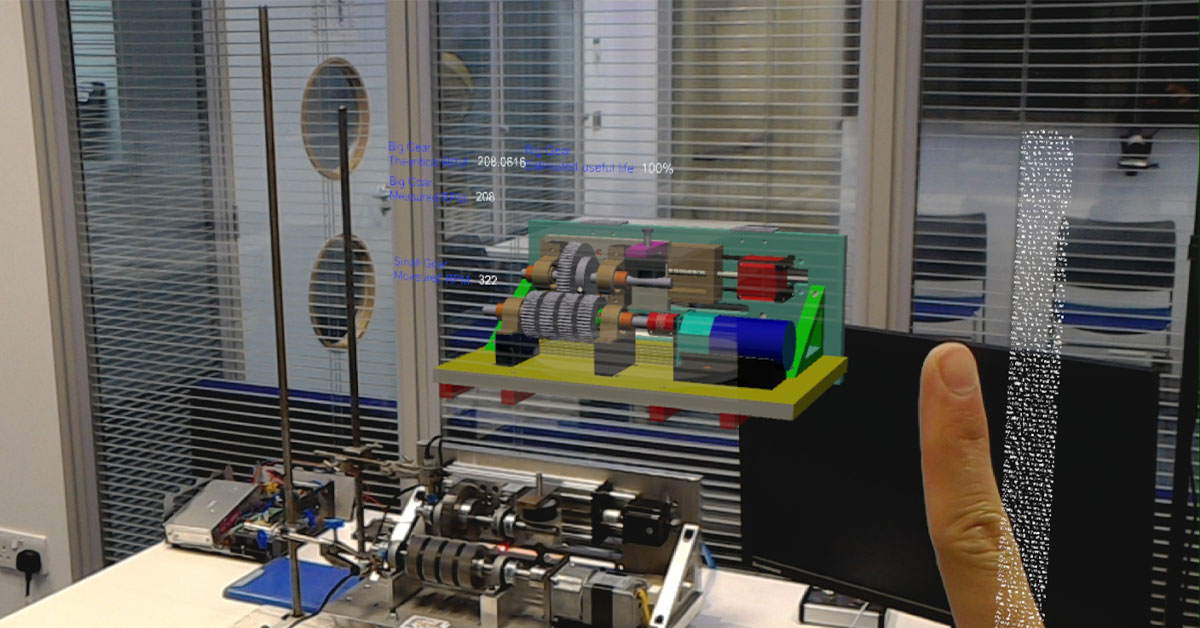Digital technologies – sound great, but can I use them?
24/01/2022

Productivity is one of the biggest challenges currently facing the UK manufacturing sector.
According to data from the ONS, the UK has a long-running nominal productivity gap with the other six G7 economies in both output per hour and output per worker terms. For example, UK workers are 26.2% less productive than their German counterparts meaning that the latter could work a four-day week and still match British output.
Several factors lie behind this data:
- Leadership
- The culture for innovation
- Our ability to adopt new technologies
- Skills within the workforce
To plug the productivity gap, we need to look at how we can improve in these areas.
In particular, how can we adopt and implement the fantastic digital technologies now available in the manufacturing space? It is all very well having an awareness and understanding of these technologies, but they are essentially useless if we are not using them.
Answering this question requires a bespoke approach, tailored to the specific needs of a company – its product, operational processes, and employees – so that new technologies can be designed and developed within the correct context. It also requires a long-term outlook, so that technologies are embedded and evolved over time, rather than implemented as one-off solutions. In this way, we can improve productivity by capitalising on the technologies that are available to us.
It is against this backdrop that the Digital and Technology Solutions Apprenticeship MSc at Cranfield University was created. Situated within the Centre for Digital Engineering and Manufacturing (CDEM), a world-leader in digital engineering, this unique and innovative apprenticeship MSc takes a systems-view to offer awareness and hands-on knowledge to design and develop digital technologies and solutions (including AI/Machine learning, digital twins, AR/VR, data analytics, data management) across industries that rely on complex engineered products and services. We blend technical and managerial skills to promote the creation, adoption, and evolution of digital technologies and solutions. We also take an innovative approach to deliver the course with cutting-edge, blended learning methods.
John Ahmet Erkoyuncu, Professor of Digital Engineering at the CEDM, says: “Digital manufacturing will undoubtedly shape our future. There are so many benefits both for nations and organisations, for whom competitive advantage will depend on these transformations. As we move into a more digitalised environment, we will need to be managing data better, delivering whole system level productivity benefits and improvements, and meeting the sustainability targets.”
In this blog series, we will explore three key areas where new technologies will have the biggest impact:
- Data
- Modelling
- Visualisation
Bridging the productivity gap requires focusing on equipping people with the skills and understanding that they need to benefit from advanced technologies, so that they can go on to develop their own solutions. Knowledge is power and, armed with it, individuals can adapt to the environment that they’re working in and be really targeted in their approach, to design and develop digital solutions that yield real results.
Find out more about our Digital and Technology Solutions Apprenticeship MSc.
Categories & Tags:
Leave a comment on this post:
You might also like…
Company codes – CUSIP, SEDOL, ISIN…. What do they mean and how can you use them in our Library resources?
As you use our many finance resources, you will probably notice unique company identifiers which may be codes or symbols. It is worth spending some time getting to know what these are and which resources ...
Supporting careers in defence through specialist education
As a materials engineer by background, I have always been drawn to fields where technical expertise directly shapes real‑world outcomes. Few sectors exemplify this better than defence. Engineering careers in defence sit at the ...
What being a woman in STEM means to me
STEM is both a way of thinking and a practical toolkit. It sharpens reasoning and equips us to turn ideas into solutions with measurable impact. For me, STEM has never been only about acquiring ...
A woman’s experience in environmental science within defence
When I stepped into the gates of the Defence Academy it was the 30th September 2019. I did not know at the time that this would be the beginning of a long journey as ...
Working on your group project? We can help!
When undertaking a group project, typically you'll need to investigate a topic, decide on a methodology for your investigation, gather and collate information and data, share your findings with each other, and then formally report ...
From passion to purpose: My journey at the Pinnacle of Aviation
By: Sultana Yassin Abdi MSc Air Transport Management, Current Student Born and raised in the vibrant landscape of the UAE, with roots stretching back to Somalia, my life has always been ...






